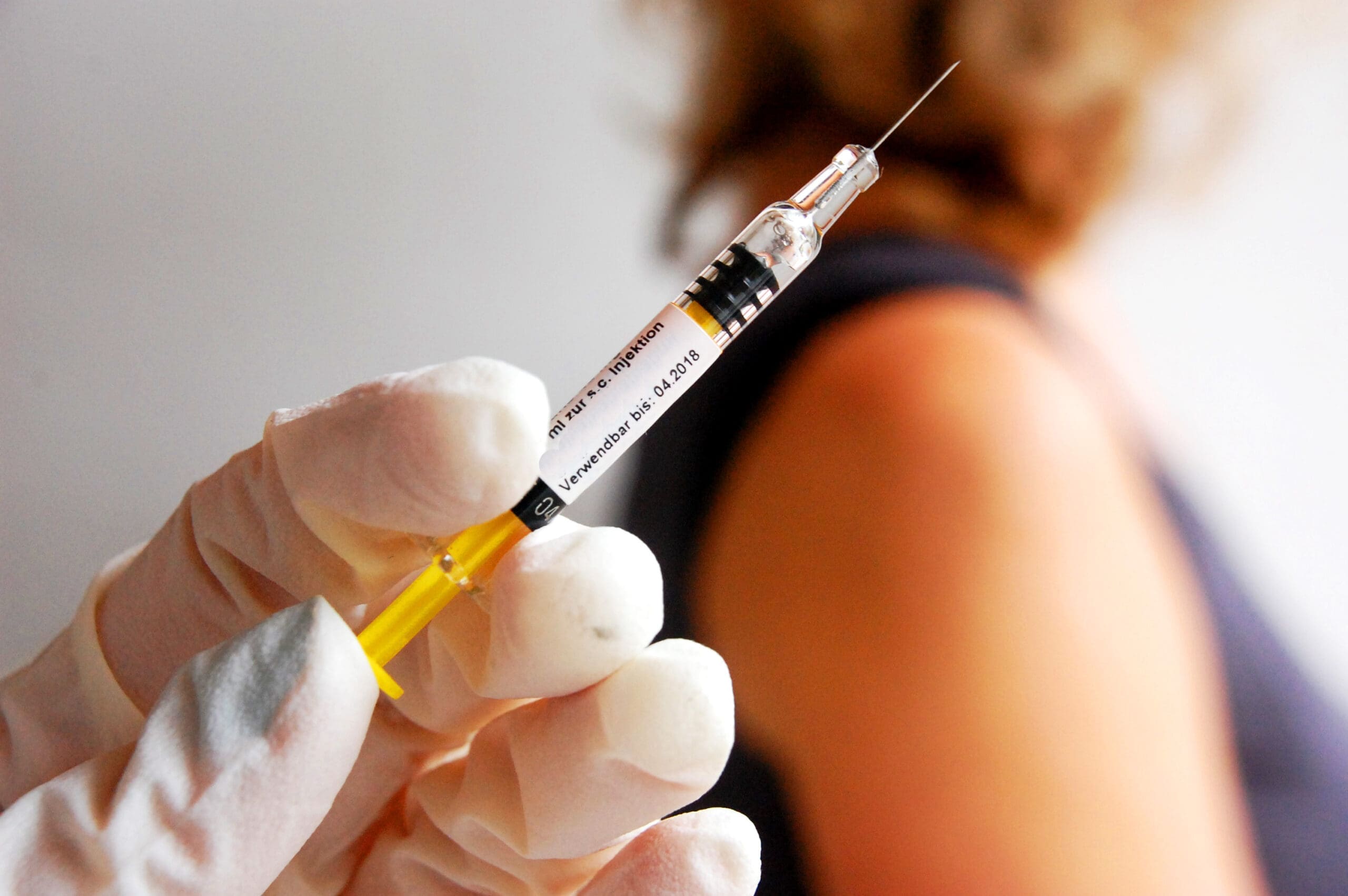Since the introduction of widespread vaccination programmes, millions of people have been protected against potentially fatal diseases, and countless lives have been saved.
Vaccines prepare your immune system to fight disease by taking advantage of the fact that the immune system can ‘remember’ infectious organisms. Vaccination gives us immunity without us having to experience the disease or its symptoms.
What’s in a vaccine?
Each vaccine contains a killed or weakened form of the organism (usually a virus or bacterium) that causes a particular disease. Even though the organism in the vaccine has been altered so that it won’t make you ill, the part of the organism that stimulates your immune system to respond (the antigen) is still present.
| What is an antigen? |
|---|
| An antigen is any substance that is recognised as foreign and stimulates the production of antibodies, for example an antigen may be a ‘foreign’ protein on the surface of a bacterium. An antigen specifically induces the production of antibodies which can bind to it and neutralise it. |
While most vaccines work by inducing B lymphocytes to produce antibodies (see below), activation of T-cells — another type of immune system cell that helps protect against disease — is also important for some vaccines.
What happens after vaccination?
After you have been vaccinated, some of the cells that are responsible for protecting you against disease — your B lymphocytes — detect the antigens in the vaccine. The B lymphocytes will react as if the real infectious organism was invading your body. They multiply to form an army of identical cells that are able to respond to the antigens in the vaccine. The cloned cells then evolve into one of 2 types of cells:
- plasma cells; or
- memory B cells.
The plasma cells produce antibodies (Y- or T-shaped molecules), which are trained specifically to attach to and inactivate the organism you are being vaccinated against.
This response from your immune system, generated by the B lymphocytes, is known as the primary response. It takes several days to build to maximum intensity, and the antibody concentration in the blood peaks at about 14 days.
Your body continues making antibodies and memory B cells for a couple of weeks after vaccination. Over time, the antibodies will gradually disappear, but the memory B cells will remain dormant in your body for many years.

How does vaccination prevent disease?
The memory B cells (as the name implies) keep a memory of the organism that you were vaccinated against. If you are ever exposed to that organism, the dormant memory cells will recognise it straight away, and rapidly start multiplying and developing into plasma cells. Because the plasma cells have already been trained to produce antibodies against the organism, they are able to produce a large number of antibodies very quickly (within hours).
The antibodies attach to the invading organisms and prevent them from attacking your healthy cells. And because the antibodies are produced so quickly, they are able to fight the disease before you even get sick.
This accelerated and more intense immune response generated by the memory B cells is known as the secondary response. It is faster and more effective because all the preparations for the attack were made when you were vaccinated.


Different types of vaccines
Most vaccines are injected, but some can be given as a liquid that is swallowed. There are 4 main types of vaccines:
- live attenuated vaccines, which contain a living, but weakened, form of the germ (organism);
- inactivated vaccines, which contain a killed form of the organism;
- subunit vaccines, which contain just the part of the organism that stimulates an immune response (the antigen); and
- toxoid vaccines, which contain an inactivated bacterial toxin (toxoid).
While the live vaccines can provide lifelong immunity after only one or 2 doses, periodic booster doses are needed to maintain immunity with some of the other types of vaccines.
Are vaccines safe?
While vaccines can sometimes cause a mild reaction (such as soreness at the injection site or a slight fever), there are usually no serious adverse events associated with immunisation. Severe allergic reactions or serious side effects only very rarely occur.
Some people worry that the vaccine will cause the very disease that it is supposed to prevent. Occasionally, live attenuated vaccines cause a mild infection, but most people don’t get the disease or experience any symptoms. It is not possible for the other types of vaccines to cause disease in this way.
People with weakened immune systems and pregnant women should consult their doctor before having vaccinations.
For most people, not being immunised is a far greater risk to their health than any side effects associated with vaccination.

